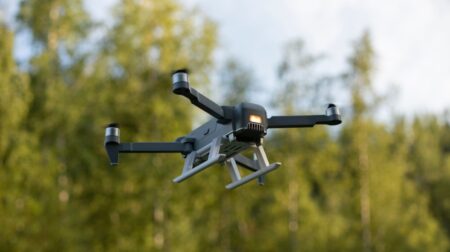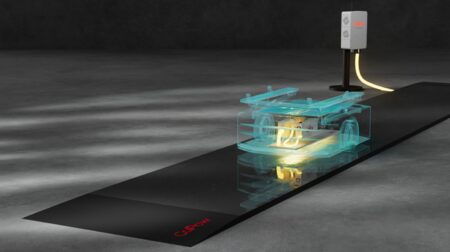University of Sheffield spin-out Opteran is developing lightweight silicon brains to enable robots to see, navigate and make decisions like insects. This follows £2.1m in seed funding raised by the natural intelligence company.
The funding will be used to replicate insect brains to enhance control of autonomous vehicles and robots.
The start-up will produce algorithms requiring no data centre or extensive pre-training. The technology can mimic tasks such as seeing, sensing objects, obstacle avoidance, navigation and decision making.
In a recent trial, Opteran were able to control a sub-250g drone with complete onboard autonomy, using fewer than 10,000 pixels from a single low-resolution panoramic camera.
The technology itself weighs 30g and requires less than a watt of power. The Opteran development kit will enable the technology to be integrated into a wide variety of applications in the robotics market.
David Rajan, Chief Executive of Opteran, said: “2021 will be the year when natural intelligence will challenge deep learning in solving some of the most fundamental shortcomings in autonomous applications and this funding round will set Opteran on a path to be at the forefront of this next wave.
“Already in a position to demonstrate the technology, we are confident that natural intelligence will become highly sought after as the way to deliver lightweight, low-cost and effective autonomy in a radically new way that will open up huge growth opportunities for robotics.”
This latest round of funding was led by IQ Capital with Episode1, Join and Seraphim Capital also participating. Following on from a pre-seed round from the Connecting Capabilities Fund of the British Business Bank, it also includes angel investors and a CCF grant, a part of the Northern Triangle Initiative.
Ed Stacey, partner at IQ Capital, said: “Natural intelligence adds a whole new dimension that will transform the way in which we create intelligent machines – starting with the design of more efficient silicon brains for robots and autonomous vehicles. We are delighted to be supporting them at the start of their commercial journey and are excited to see the technology they create and the role it plays in the wider AI market in the years ahead.”
Over the next 18 months, Opteran will use this seed funding to build out functionality in the algorithms and chipsets. It will also enable it to expand its engineering and commercial team.








